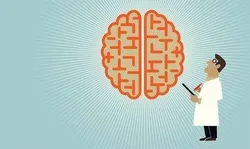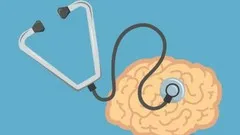
Behavioral Neuroscience: Foundations of Compulsive Behaviors 
This course provides an overview of the foundations of compulsive behaviors in behavioral neuroscience. It covers topics such as the responsible handling of laboratory mice according to federal law, the scientific justification of animal research, and humane and ethical practices. It also includes IACUC training to ensure the safety and welfare of animals used in research. ▼
ADVERTISEMENT
Course Feature
![]() Cost:
Cost:
Free
![]() Provider:
Provider:
Edx
![]() Certificate:
Certificate:
Paid Certification
![]() Language:
Language:
English
![]() Start Date:
Start Date:
Self paced
Course Overview
❗The content presented here is sourced directly from Edx platform. For comprehensive course details, including enrollment information, simply click on the 'Go to class' link on our website.
Updated in [March 06th, 2023]
This course, Behavioral Neuroscience: Foundations of Compulsive Behaviors, provides learners with an understanding of the fundamentals of research involving mice, mice behavior and how it can be used to understand human behavior. Learners will gain knowledge on how to handle laboratory mice responsibly according to federal law by completing animals care and use training. They will also understand how research on animals must be scientifically justified, humane and ethical, use appropriate research methods, and provide new knowledge.
The course will also cover the collection of behavioral data from mouse videos from compulsive-like, non-compulsive-like, and randomly bred mouse strains; a mouse model of obsessive-compulsive disorder (OCD). Learners will gain competency in using behavioral tests to measure repetitive behaviors in laboratory mice analogous to compulsions in humans. They will also establish a foundation in using behavioral tests in laboratory mice to be able to confidently learn how to use new tests.
Learners will develop an ability to analyze behavioral neuroscience data using mice and understand repetitive (compulsive-like) behaviors in animal models. They will also obtain a competency in describing key characteristics of OCD in humans and human behavior as described in the diagnostic and statistical manual of mental disorders (DSM), including obsessive and intrusive thoughts, repetitive behaviors, and hoarding disorder.
The course will also provide learners with a capability to formulate original research hypotheses as used in the fields of behavioral sciences, neuropsychology, and behavioral neuroscience. They will also obtain a competency in describing and discussing how basic research contributes to the animal model of OCD and how it may have the potential to improve human mental health conditions, quality of life and the biological basis of human behavior.
It is important to note that learners who join this course should be free of objections to using mice in research.
[Applications]
Upon completion of this course, learners will be able to apply their knowledge to research involving laboratory mice, understand the ethical considerations of using animals in research, and develop an ability to analyze behavioral neuroscience data. They will also be able to formulate original research hypotheses, interpret and discuss results in the context of human behavior, and describe key characteristics of OCD in humans. Finally, they will be able to discuss how basic research contributes to the animal model of OCD and how it may have the potential to improve human mental health conditions, quality of life, and the biological basis of human behavior.
[Career Paths]
The career paths recommended to learners of this course are:
1. Behavioral Neuroscience Research Scientist: Behavioral neuroscience research scientists use laboratory mice to study the biological basis of human behavior, including compulsive behaviors. They use a variety of methods, such as behavioral tests, to measure repetitive behaviors in laboratory mice. They analyze behavioral neuroscience data and interpret results in the context of human behavior, especially psychiatric disorders. This field is rapidly growing, with new research and discoveries being made every day.
2. Neuropsychologist: Neuropsychologists specialize in the study of the brain and behavior. They use a variety of methods, such as neuroimaging, to study the structure and function of the brain. They also use behavioral tests to measure repetitive behaviors in laboratory mice and interpret results in the context of human behavior, especially psychiatric disorders. Neuropsychologists are in high demand, as they are needed to help diagnose and treat mental health conditions.
3. Animal Care Technician: Animal care technicians are responsible for the care and welfare of laboratory animals, including mice. They are responsible for providing food, water, and housing for the animals, as well as monitoring their health and behavior. They also provide training to researchers on how to handle laboratory animals responsibly according to federal law. Animal care technicians are in high demand, as they are needed to ensure the safety and well-being of laboratory animals.
4. Clinical Psychologist: Clinical psychologists specialize in the diagnosis and treatment of mental health conditions. They use a variety of methods, such as psychotherapy, to help patients manage their mental health. They also use behavioral tests to measure repetitive behaviors in laboratory mice and interpret results in the context of human behavior, especially psychiatric disorders. Clinical psychologists are in high demand, as they are needed to help diagnose and treat mental health conditions.
[Education Paths]
Recommended degree paths for learners of this course include:
1. Bachelor of Science in Behavioral Neuroscience: This degree program provides students with a comprehensive understanding of the biological, psychological, and social aspects of behavior. Students learn about the structure and function of the brain, the development of behavior, and the effects of drugs and other environmental factors on behavior. They also gain an understanding of the ethical considerations of conducting research on animals. This degree is becoming increasingly popular as the field of neuroscience continues to grow and develop.
2. Master of Science in Neuroscience: This degree program provides students with a deeper understanding of the biological, psychological, and social aspects of behavior. Students learn about the structure and function of the brain, the development of behavior, and the effects of drugs and other environmental factors on behavior. They also gain an understanding of the ethical considerations of conducting research on animals. This degree is becoming increasingly popular as the field of neuroscience continues to grow and develop.
3. Doctor of Philosophy in Neuroscience: This degree program provides students with an in-depth understanding of the biological, psychological, and social aspects of behavior. Students learn about the structure and function of the brain, the development of behavior, and the effects of drugs and other environmental factors on behavior. They also gain an understanding of the ethical considerations of conducting research on animals. This degree is becoming increasingly popular as the field of neuroscience continues to grow and develop.
4. Doctor of Psychology in Behavioral Neuroscience: This degree program provides students with an in-depth understanding of the biological, psychological, and social aspects of behavior. Students learn about the structure and function of the brain, the development of behavior, and the effects of drugs and other environmental factors on behavior. They also gain an understanding of the ethical considerations of conducting research on animals. This degree is becoming increasingly popular as the field of neuroscience continues to grow and develop.
Course Provider

Provider Edx's Stats at AZClass
Behavioral Neuroscience: Foundations of Compulsive Behaviors provides an overview of the foundations of compulsive behavior in behavioral neuroscience. It covers topics such as the responsible handling of laboratory rats under federal law, the scientific basis for animal research, and humane and ethical practice. It also includes IACUC training to ensure the safety and welfare of animals used in research. Take this behavioral neuroscience course to gain a comprehensive understanding of the rationale for research involving mice, their behavior, and how it can be used to understand human behavior. Learn how to handle laboratory mice responsibly in accordance with federal law, understand the ethical and humane use of research methods and gain the ability to use behavioral tests to measure repetitive behaviors in laboratory mice.
Discussion and Reviews
0.0 (Based on 0 reviews)
Explore Similar Online Courses

WordPress Website in a Weekend

An Introduction to the Nordoff Robbins approach to Music Therapy

Python for Informatics: Exploring Information

Social Network Analysis

Introduction to Systematic Review and Meta-Analysis

The Analytics Edge

DCO042 - Python For Informatics

Causal Diagrams: Draw Your Assumptions Before Your Conclusions

Whole genome sequencing of bacterial genomes - tools and applications

Control Your Subconscious Mind: Neuroscience Hidden Secrets

Perform an Excellent Neurological Bedside Exam

Brain and Behavioral Science Fundamentals
 Related Categories
Related Categories
Quiz
 Submitted Sucessfully
Submitted Sucessfully
1. What is the main purpose of this course?
2. What is the DSM?
3. What is the main goal of this course?
4. What is the primary purpose of this course?
5. What is the purpose of using mice in research?
Correct Answer: To gain insight into how the human brain works.


Start your review of Behavioral Neuroscience: Foundations of Compulsive Behaviors